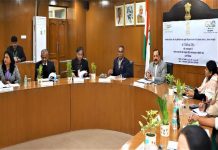The year 2020 saw a major change in the functioning of the Supreme Court. The court heard thousand of cases in virtual mode and passed significant judgements. As per the report made by OrissaPost, here are some of the prominent orders passed by the Supreme Court.
- Right To Interest: In the first month of 2020, the Supreme Court, while hearing a batch of petitions on the blackout of Internet services in Jammu and Kashmir, held that right to access the Internet is a fundamental right by extension. Therefore, it can be demanded as such before a Constitution court. Further, every blackout order must specify reasons and has to be reviewed regularly by the authorities concerned.
- Reservation not a fundamental right: In February 2020, the Supreme Court, in a significant judgement ruled that reservation is not a fundamental right to claim reservation in government jobs. It also held that it is within the absolute discretion of a state government to decide whether or not to provide for the reservation and also there is no obligation on the states to mandatorily do so. The apex court order came in a batch of petitions seeking reservation for SCs and STs in the promotion.
- Permanent commission to women: In another significant judgement, the Supreme Court in February granted a permanent commission to women in Defence forces. The Supreme Court directed the government to give permanent commission to all serving women officers who have complete 14 years of service and ti also give pension benefits to those who retired on account of not being granted the commission.
- NEET is constitutionally valid for the medical exam: The Supreme Court in April upheld the National Eligibility-cum-Entrance Test (NEET) for admission in graduate and postgraduate medical and dental courses in the country. A three-judge bench of the apex court made it clear that NEET will be only the test for admission in medical courses and institutes cannot hold a separate test for the same. So Moto PIL on migrant crisis Initially refusing to pass any direction to the government with regard to the plight of migrant labours returning to home, the Supreme Court took Suo Moto cognisance in May and passed a slew of directions to the Union and state governments. The court asked the state government to identify migrant workers and transport them to native their states within 15 days, The court also asked the state government to open help desk to provide employment to migrant workers. The court also asked the Union government to provide trains within 24 hours of the demand.
- Daughter’s right to paternal property: The Supreme Court in August rules that daughters would have equal rights in Hindu Undivided Family (HUF) properties. The apex court held that a daughter is for a lifetime and held that daughter will remain coparcener (one who shares equally with others in the inheritance of an undivided joint family property) throughout life even if the father was not alive at the time of 2006 amendment to the Hindu Succession Act, 1956 to give daughters the same rights in the coparcenary (parental) property as the sons.
- AYUSH docs restrained from prescribing for COVID-19: The Supreme Court upheld the order of the Kerala High Court that restrained AYUSH doctors from giving prescriptions to COVID-19 patients.
- SC exempts factories from paying overtime wages: The Supreme Court quashed a notification of the Gujarat government that exempted factories from paying overtime wages to its workers. The top court held that pandemic cannot be an excuse to junk statutory provisions that ensure dignity and right to proper wages to workers.
- SC refuses to direct transfer of fund from PM CARES to NDRF: The Supreme Court had refused to direct the transfer of fund collected under PM care to National Disaster Response Fund (NDRF) citing that contributions to the PM Cars Fund are voluntary and there was bo statutory prohibition on contributions made to the NDRF. The fund collected in the PM CARES Fund is the entirely different fund which are funds of public charitable trust and there is no occasion for issuing any direction to transfer the said funds to the NDRF.














